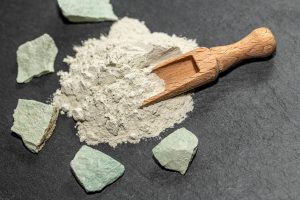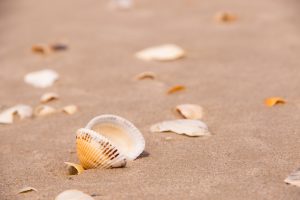To combat environmental degradation globally, there is a growing urgency to utilise sustainable materials that support more environmentally friendly practices. The world faces some of its most critical environmental challenges, including a lack of clean water and the overwhelming abundance of untreated waste. As the planet continues to heat up, the urgency to act becomes increasingly critical – failure to do so could result in the depletion of a significant portion of our natural resources within the next 30 years.
Researchers are racing to find innovative solutions in response to these pressing issues. Among these trailblazers is Associate Professor Dr Low Wen Pei and her team from the Faculty of Engineering and Quantity Surveying at INTI International University. Their research redefines how we view natural materials, specifically two seemingly unremarkable substances: zeolite, a common mineral, and clamshells, a byproduct of the seafood industry. Dr Low’s research has uncovered the immense potential of these materials to address some of today’s most urgent environmental challenges.

Associate Professor Dr Low Wen Pei has led her team from the Faculty of Engineering and Quantity Surveying at INTI International University in groundbreaking research that transforms how we view natural materials.
Dr Low’s research exemplifies that solutions to complex problems are often found in the most unexpected places. Zeolite, for instance, is a mineral that has been around for millions of years, primarily recognised for its role in water purification and as a soil conditioner in agriculture. However, Dr Low’s study elevates this humble mineral to new heights, exploring its capacity as a natural filter in water pollution control.
“Zeolite has a porous structure and is nothing short of extraordinary,” Dr Low explains. “It acts like a sponge, absorbing harmful substances such as heavy metals and ammonia from water and soil. Our experiments showed that it can significantly reduce the concentration of these pollutants, making it a powerful tool in the fight against environmental contamination.”
Zeolite is a mineral that has existed for millions of years, primarily known for its role in water purification and as a soil conditioner in agriculture.
This discovery is particularly relevant for industries grappling with their environmental footprint. Pollution from heavy metals and other toxins poses a significant challenge for mining, manufacturing, and agriculture sectors. Traditional pollution control methods can be expensive and often involve using chemicals that carry their environmental risks. Zeolite offers a natural, cost-effective alternative that mitigates pollution and helps companies comply with environmental regulations.
Dr Low’s research doesn’t stop with zeolite. She also investigates the potential of saltwater clamshells—often discarded as waste by the seafood industry. Composed primarily of calcium carbonate, clamshells are abundant, especially in coastal regions where seafood processing is prevalent. Recognising an opportunity to turn this waste into a valuable resource, Dr Low and her team’s findings have the potential to revolutionise how we perceive industrial byproducts.
Dr Low and her team’s research also explores the potential of saltwater clamshells, often considered waste and discarded by the tons due to consumption.
“Clamshells are much more than just food waste,” Dr Low asserts. “We’ve found that they can be processed into various useful materials. For example, they can be ground into a fine powder and used as a raw material in cement production. This reduces the need for virgin materials and provides a sustainable solution for waste management in the seafood industry.”
Furthermore, Dr Low’s team explored the potential of clamshells as soil conditioners, improving soil structure and providing essential nutrients. This innovation could significantly affect agriculture, particularly in regions with poor soil quality. By incorporating clamshells into farming practices, soil health could be enhanced, the reliance on chemical fertilisers reduced, and more sustainable farming methods supported. Thus, this research isn’t just about being environmentally conscious; it’s about making intelligent, strategic decisions that benefit both the environment and the industry.
“Nature has been perfecting these materials for millions of years,” Dr Low concludes. “It’s up to us to harness their potential and apply it in ways that benefit society. The possibilities are endless, Whether through cleaner water, healthier soils, or more sustainable industries.”
As the sixth Sustainable Development Goal emphasises universal access to clean water, it’s crucial for the 2 billion people currently lacking it. Affordable and straightforward clean water management can help underprivileged communities enjoy this necessity.

